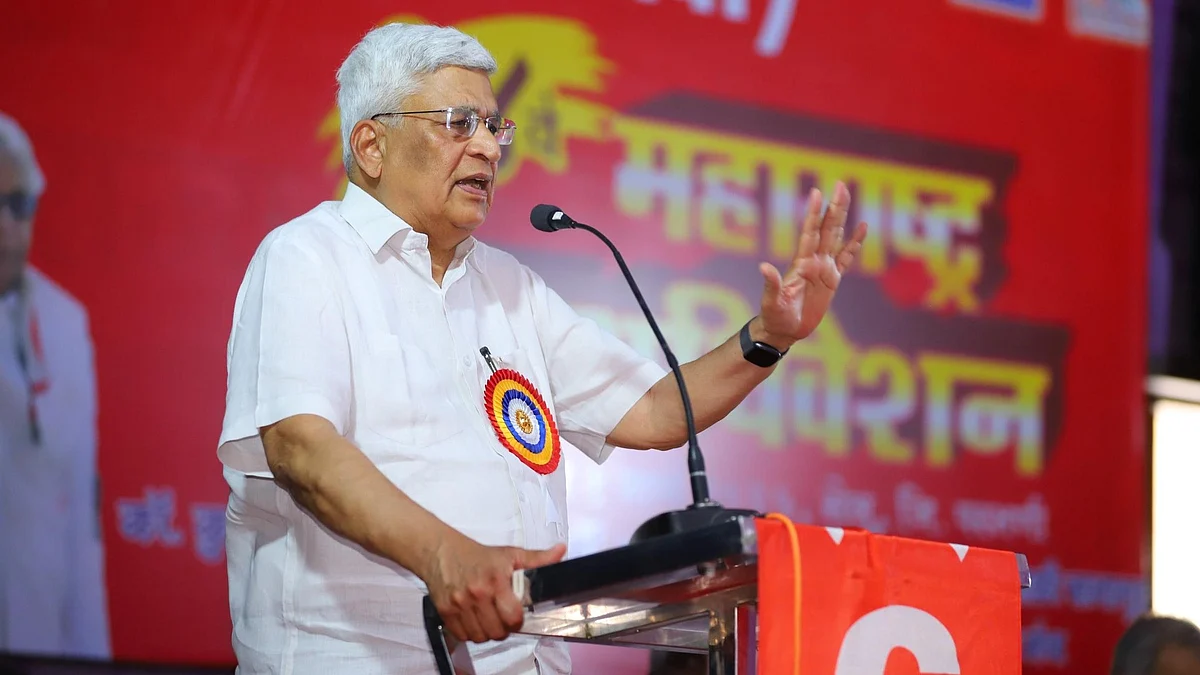World
Nuclear deal with US has put India in a ‘bind’ today: Prakash Karat
“When our prime minister went to Washington, what are the two things Trump extracted from us?” he asked, adding “You (India) are not in a position to say ‘No’”

The 2008 nuclear deal with the US, which the Left had vehemently opposed, became a cementing factor for a deeper strategic alliance between the two countries and Donald Trump's presidency has now put India in a "bind", CPI(M) leader Prakash Karat said on Thursday, 13 March, as he called for improving relations with China as a balancing factor.
In an interview with PTI, Karat, the interim coordinator of the Communist Party of India (Marxist), said India does not need to be allies with China, but improving relations with the northern neighbour will help India's position in a multipolar world.
Amid the ongoing tariff dispute with the US, he recalled that in 2008, when the Left parties withdrew support from the United Progressive Alliance (UPA) government over the Indo–US civil nuclear deal, the move was seen only in the context of the deal.
However, over the years, he said, it has led to strategic relations developing in a way that today the Trump administration is trying to ‘extract’ deals from India.
Karat, who served as the general secretary of the party from 2005 to 2015, was at the helm when the CPI(M)'s withdrawal of support from the UPA government led to the alliance government facing a test of strength in Parliament (which it survived with the backing of the Samajwadi Party).
Published: undefined
"People saw our opposition to the India–US nuclear deal only within the framework of that civil nuclear deal. We saw it in a wider perspective because the real thing was America was saying, ‘We will give you this nuclear deal. We will remove all those earlier restrictions and prohibitions which were there... But the quid pro quo is that you come into a military and defence agreement with us’ — which we entered into: the 10-year military framework agreement," Karat told PTI.
"The Indo–US nuclear deal was the sort of cementing factor for that. That is one of the major reasons for our objection... In the last 15–20 years, we have seen that we have entered into a much deeper strategic alliance (with the US). So, now, when Trump has come, you are in a bind," he said.
India and the US had in 2005 signed a 10-year New Framework for the US–India Defense Relationship. After that, the two countries had announced their agreement on an Indo–US Civil Nuclear Deal, through which the US removed important non-proliferation sanctions on India in exchange for India's commitment not to conduct any more nuclear tests and place its civil nuclear facilities under International Atomic Energy Agency (IAEA) safeguards.
"Pranab Mukherjee, who was the defence minister then, first went and made this agreement. Then came the nuclear deal. We said that this is part of forging a wider strategic alliance with the United States and we should not get into that type of alliance," Karat recalled.
Published: undefined
Referring to Prime Minister Narendra Modi’s recent visit to the US, he said the Trump administration was trying to force India into buying more arms from them to boost their domestic industry.
"When our prime minister went to Washington, what are the two things Trump extracted from us? One is buying more arms.
"They want to sell arms to us because he (Trump) wants the US' armaments industry to boom. So, caught in a commitment, we will buy more arms," Karat said.
"Second, I think we will buy USD 10 billion more of oil and gas from the US... You are not in a position to say ‘No’.
"For example, that fighter plane they are offering us is the F-35A. It's something everybody says is not going to be suitable for India. It's unsustainable. It's highly expensive. But will you be able to say no?" he asked.
Published: undefined
"We don't want this. So, my point is that with Trump coming, his presidency will pose very new challenges for us. And our foreign policy and strategic designs or approach should be rethought so that we retain strategic autonomy in a growing multipolar world," Karat continued.
He added that in order to safeguard India's interests in a multipolar world, relations with China should be improved, even if the two Asian nations don't become allies.
"I think, for our own country's benefit and interest in a multipolar world, it is necessary for us to improve relations with China without actually becoming allies and set it in some sort of balanced, normal fashion," he said.
Published: undefined
Karat said the recent de-escalation in eastern Ladakh and moves like giving more visas for visits to Kailash Mansarovar show that there is indeed some improvement on that front.
"So, I think that we are taking the right course now. We don't have to become allies..., but if we maintain good relations, then our capacity to intervene and manoeuvre in this very complex developing international situation will increase and heighten, and that will be to our benefit," he said.
Karat also added that Trump's presidency can also bring some opportunities for India and that we should use our strategic autonomy to strengthen our position.
"Trump's presidency can also give us opportunities to utilise the strategic autonomy to strengthen our position. But it's something which is unfolding and many things are unpredictable about the Trump presidency.
"So, better to be cautious... what should be done or not done is something we cannot say very clearly now," he said.
Published: undefined
Follow us on: Facebook, Twitter, Google News, Instagram
Join our official telegram channel (@nationalherald) and stay updated with the latest headlines
Published: undefined